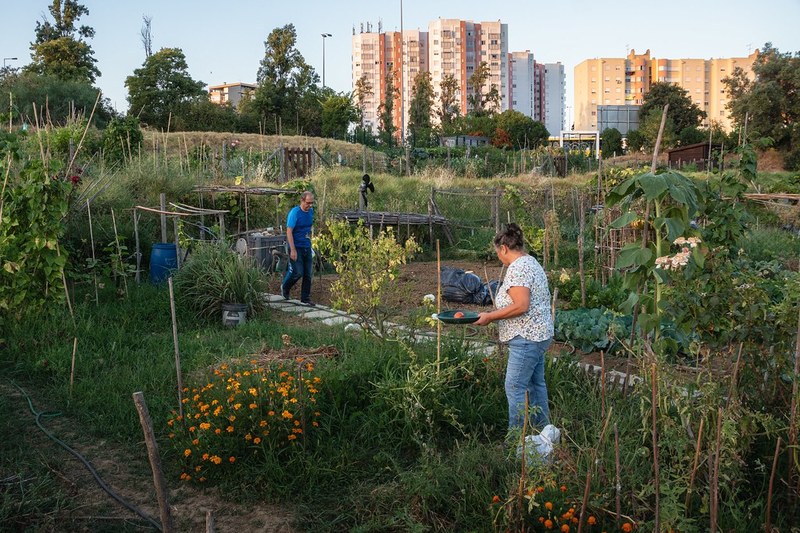Europe is warming up faster than any other continent and the most vulnerable people are bearing the brunt of climate impacts. A new report from the European Environment Agency (EEA), published today, shows that although the most vulnerable groups are disproportionately affected, they are often overlooked in climate adaptation planning and especially implementation.
The EEA report ‘Social fairness in preparing for climate change: how just resilience can benefit communities across Europe‘ highlights that while the EU and its Member States increasingly recognise justice as a key principle of climate adaptation, its practical application remains limited. Without deliberate and inclusive action, adaptation efforts may even unintentionally deepen existing inequalities.
The report looks at climate adaptation in four key systems — built environment, agriculture and food, water, and transport — and how just resilience can be embedded in each.
Vulnerable groups face higher climate risks
From heatwaves and floods to drought and rising prices, the impacts of climate change are felt unevenly across society:
- Low-income households often live in poor-quality housing with limited protection from heat or storms.
- Children are more affected by heat and pollution, especially in areas with limited green spaces.
- People with disabilities face barriers to evacuation and recovery during climate emergencies.
- Outdoor (migrant) workers, particularly in agriculture and transport, are vulnerable to extreme weather.
- Low-income groups are less able to afford adaptation measures such as insurance, and are hit hardest by rising food and utility costs.
- Ethnic minorities and indigenous peoples, such as the Roma and Sámi, often face systemic barriers to participation in planning and accessing support.
Overview of justice considerations in four key systems

Limited integration of justice in adaptation plans
The EEA report finds major gaps in how justice is incorporated into adaptation policies and actions, at European, national or subnational level:
-
Most plans identify who is at risk, but few assess who benefits from adaptation.
-
Only 4% of subnational adaptation plans involve vulnerable groups in planning.
-
Just 3% include explicit justice goals.
-
There is a lack of consistent data, indicators, and funding mechanisms to support equitable adaptation across governance levels.
A call to action across all levels
The report provides actionable recommendations for policymakers and practitioners at EU, national and local levels:
-
At EU level: Define and monitor just resilience, provide dedicated funding, and embed justice in the upcoming 2026 European Climate Adaptation Plan.
-
At national level: Mainstream justice into adaptation and related policies, ensure access for vulnerable groups, and establish systems to monitor impacts.
-
At local level: Engage marginalised communities early in planning, tailor measures to specific vulnerabilities and needs.
The report also shares practical examples from across Europe and offers guidance to help ensure that no one is left behind. Making justice a central pillar of climate adaptation is essential for building a truly resilient and inclusive Europe.
